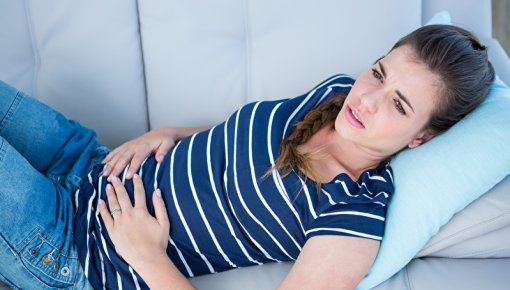The symptoms of endometriosis

Endometriosis causes severe pain, cramps, and stomach and bowel problems in some women, while others only have mild symptoms or notice nothing at all. Endometriosis symptoms mainly occur during your menstrual period, but you may also experience them at other times. The severity of symptoms doesn't always depend on how much endometriosis tissue a woman has in her body.
Endometriosis is a condition where the kind of tissue that normally lines the womb also grows in the wall of the womb or outside of the womb. Known as endometrial implants, these "growths" do not always cause pain. Depending on the extent of the disease, they can lead to various symptoms. The most common ones are:
- Very painful menstrual periods (dysmenorrhea): When a woman has her period (menstruation), the muscles in the wall of her womb repeatedly tighten and squeeze in order to shed the lining of the womb. This can cause period pain. Women who have endometriosis may have particularly severe pain and cramping during their period. Many girls and women think this is normal because things have always been that way for them. It never crosses their mind that their severe period pain might be caused by a medical condition.
- Pain during sex (dyspareunia): This pain is usually described as burning or cramp-like pain. Sometimes women only feel it after they have finished having sex.
- Abdominal (lower belly) pain: Various degrees of pain may be felt in different parts of the abdomen, sometimes radiating to the back or legs. Some describe their pain as being diffuse. It doesn't necessarily only occur during your monthly period. The pain can also become chronic.
- Gastrointestinal (stomach and bowel) problems: If endometriosis affects a woman’s bowel, she might feel full or have painful bowel movements. If it affects her bladder, passing urine (peeing) might hurt.
- Exhaustion: Severe and frequent endometriosis symptoms often lead to general exhaustion, also known as fatigue. This makes it harder to cope with physical and mental strain.
Endometriosis can also affect your fertility and sometimes prevents women from becoming pregnant.
These problems can be caused by other things too. Because of this, endometriosis is often only diagnosed after a long time, or not at all. So it's all the more important to have things thoroughly checked out by a doctor if the symptoms become too hard to cope with.
